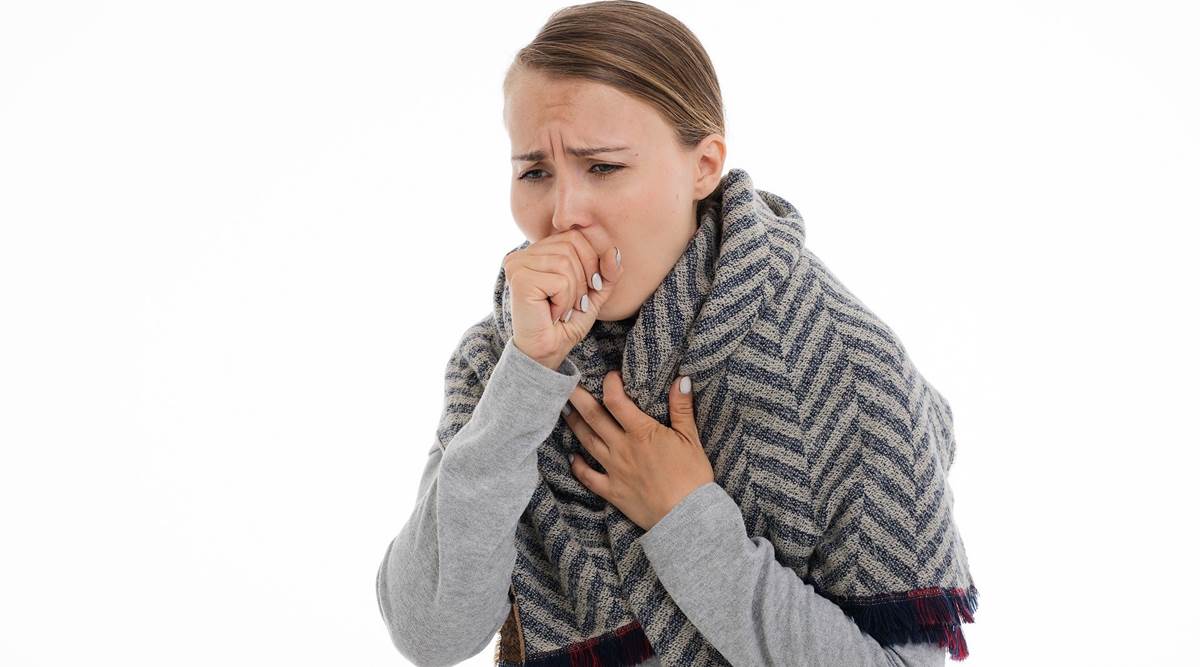In the initial stages, one of the most noticeable symptoms is persistent cough. When they last for a prolonged duration, it could indicate the cancer has progressed to stage 3, warns Dr Vishal Sehgal, Medical Director of Portea Medical

Just like other forms of cancer, lung cancer has also become a common malady that needs to be first understood and then fought. Lung cancer is a condition wherein abnormal cells multiply uncontrollably and form a tumor in the lung. It is known to spread through blood and lymphatic vessels to various parts of the body such as liver, bones, brain and gallbladder, etc., making recovery less likely.
But what happens when lung cancer has already reached stage 3? Dr Vishal Sehgal, Medical Director of Portea Medical tells indianexpress.com that almost 40 per cent of the newly-diagnosed cases of lung cancer happen to be metastatic by the time they are discovered and one-third reach stage 3. “A major challenge with lung cancer is that it generally shows no symptoms until reaching an advanced stage. The survival rates for those affected by lung cancer may vary, but stage 3 cases are also treatable depending on the prognosis and the individual’s outlook,” he says.
Stage 3 lung cancer symptoms
Stage 3 lung cancer is divided into stages 3A and 3B. Stage 3A is a locally-advanced condition wherein the disease has spread to the lymph nodes on the same side of the chest as the primary lung tumor. Stage 3B is when it has also spread to the opposite side — to the lymph nodes above the collarbone or the nodes on the other side of the chest. There is also stage 3C in which case, the cancer has spread to the entire part of the chest wall or its inner lining, and other areas that surround the heart. In the advanced stages, a part or all of the lung can become inflamed or collapse, the doctor explains.
“In the initial stages, one of the most noticeable symptoms is persistent cough. When they last for a prolonged duration, it could indicate the cancer has progressed to stage 3. Some other symptoms to watch out for are breathing difficulty, pain in the chest, wheezing sound during breathing, hoarse voice, weight loss, pain in the bones which gets worse at night, and headache”.
Treatment
Dr Sehgal says the first course of treatment is aimed at “removing the tumor as much as possible with surgery”.
“This is followed by chemotherapy and radiation. Surgery alone may not be enough for stage 3B lung cancer. There is a five-year survival rate in lung cancer, referring to those who are alive five years after they’re first diagnosed. These rates vary depending on the stage of the cancer at the time of diagnosis. The underlying thing to remember is that stage 3 is treatable. Although it is not possible to predict how each person will respond to treatment, age and overall health are important considerations. An oncologist will be able to address any concerns and help explore what options can be the best for treatment,” he reasons.
It is also imperative to make certain changes to one’s lifestyle:
* Quit smoking and drinking, particularly if you have any risk factors associated with cancer. This is one of the first steps in the prevention of cancer.
*Get vaccinated in a timely manner.
* Drink plenty of water, as it can flush out toxins from the body and dilute the concentration of cancer-causing agents.
* Consume a healthy diet that is rich in fruits, vegetables, and whole grains. Fruits and vegetables are rich in antioxidants and help in prevention of many chronic conditions.
“Today, there is an improvement in diagnosis and treatment, and once the person has undergone surgery, it is also possible to enable them to recover better with at-home healthcare. Several service providers offer home healthcare and management support for patients with critical illnesses.
“This is more so in the COVID-19 pandemic, wherein regular hospital visits can prove challenging for the patient given how there is a risk of infection. Home healthcare brands offer services like chemotherapy, palliative care, and other management options in the comfort of one’s home. Not only does this help in recovery, but also ensures that they stay away from any associated health concerns due to their low immunity,” Dr Sehgal concludes.
For more lifestyle news, follow us: Twitter: lifestyle_ie | Facebook: IE Lifestyle | Instagram: ie_lifestyle
Source: Read Full Article
